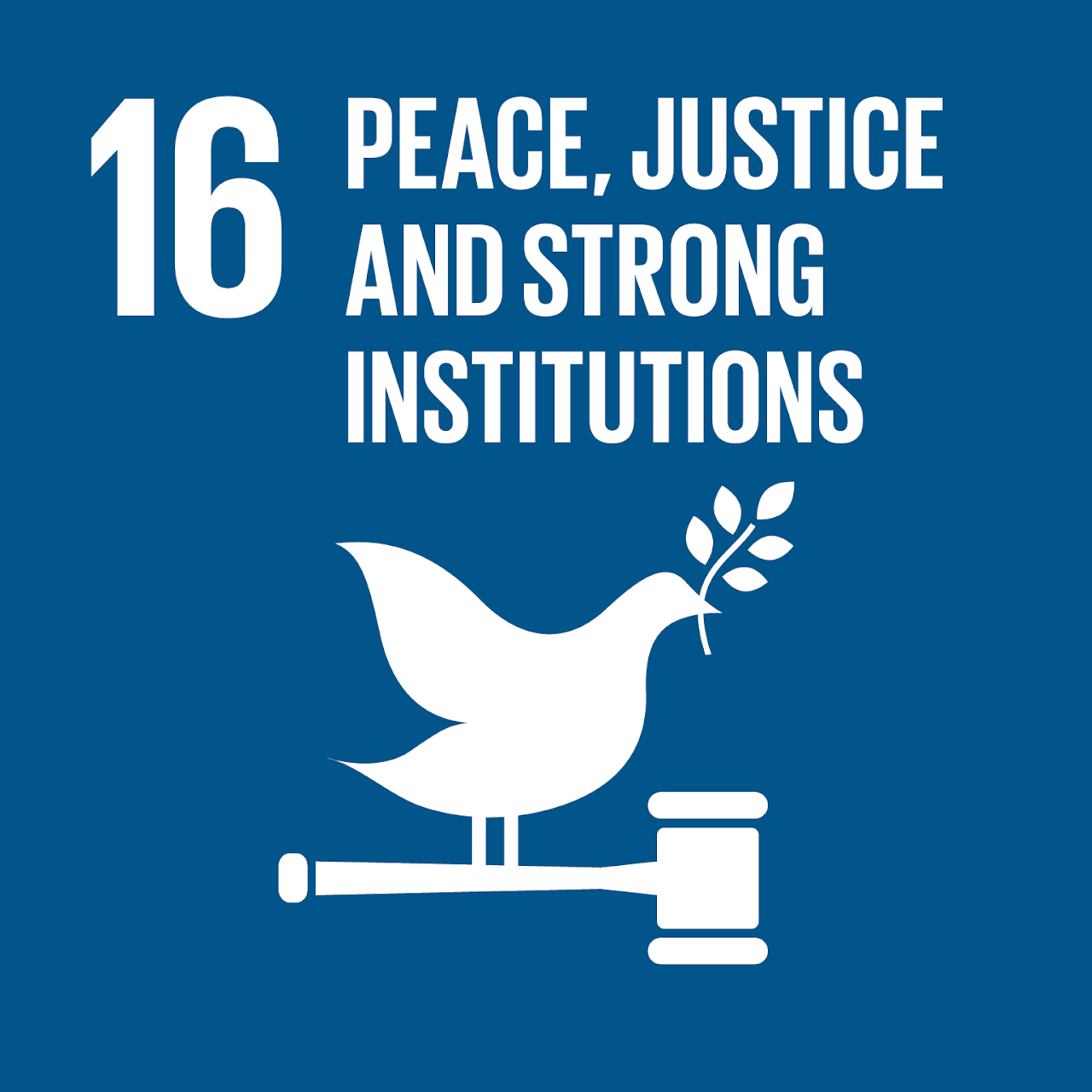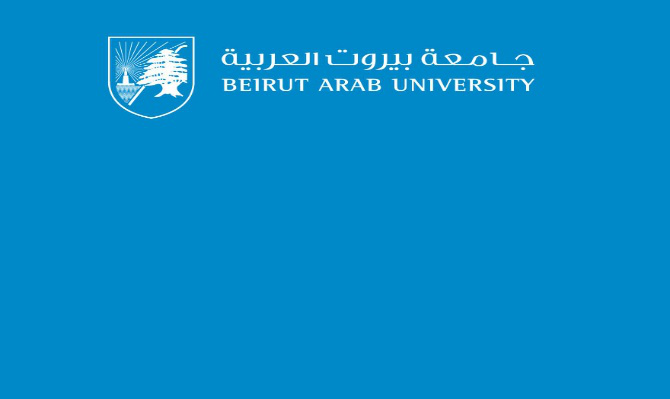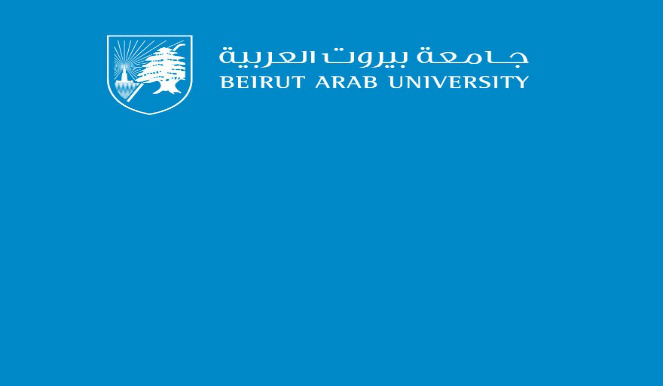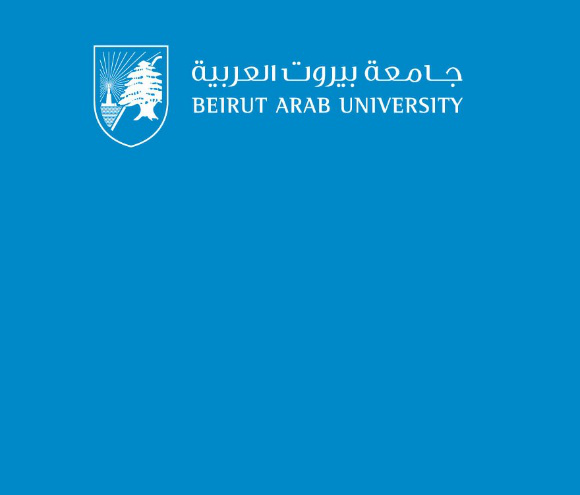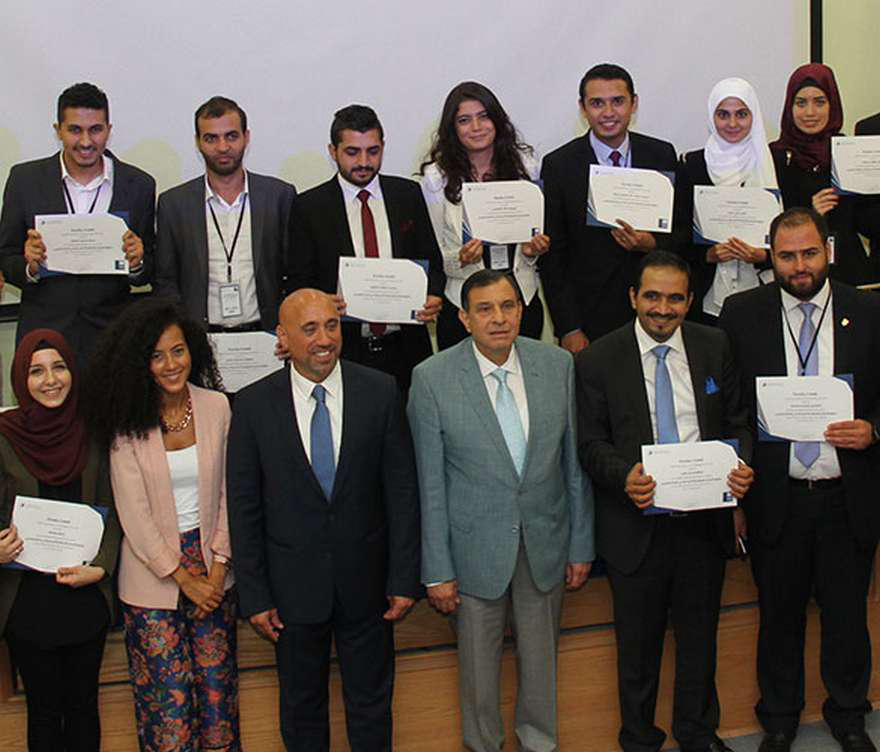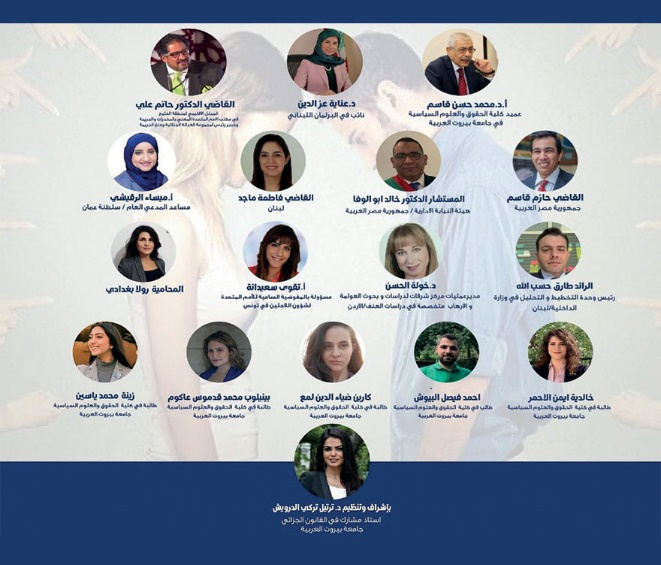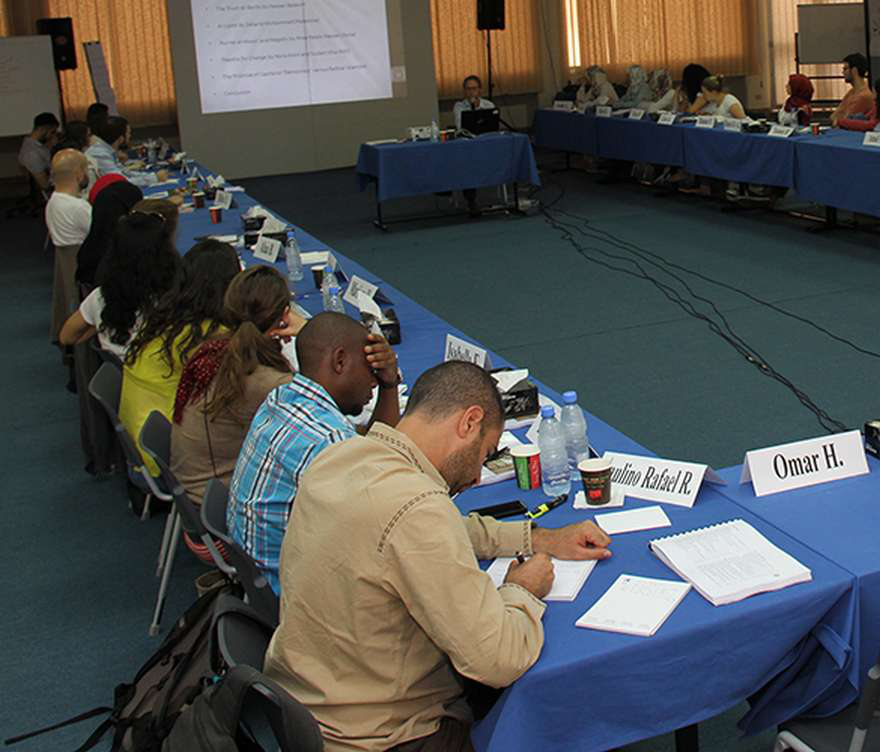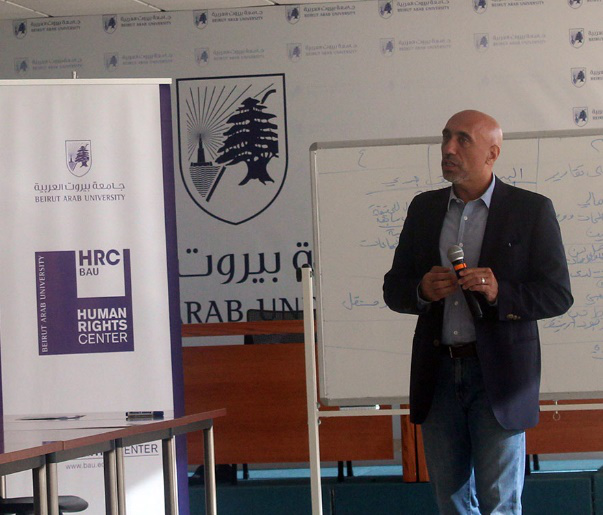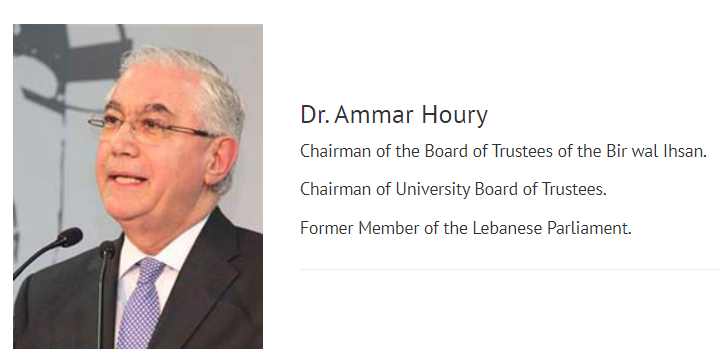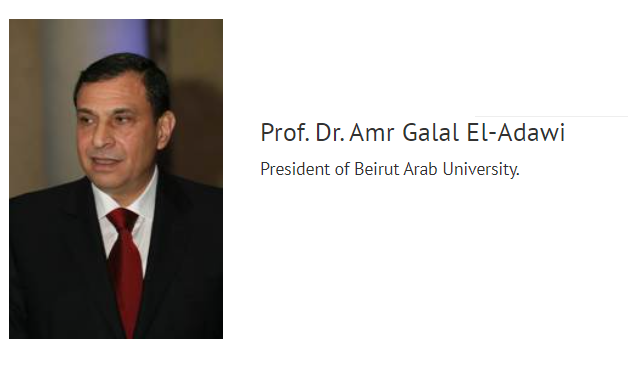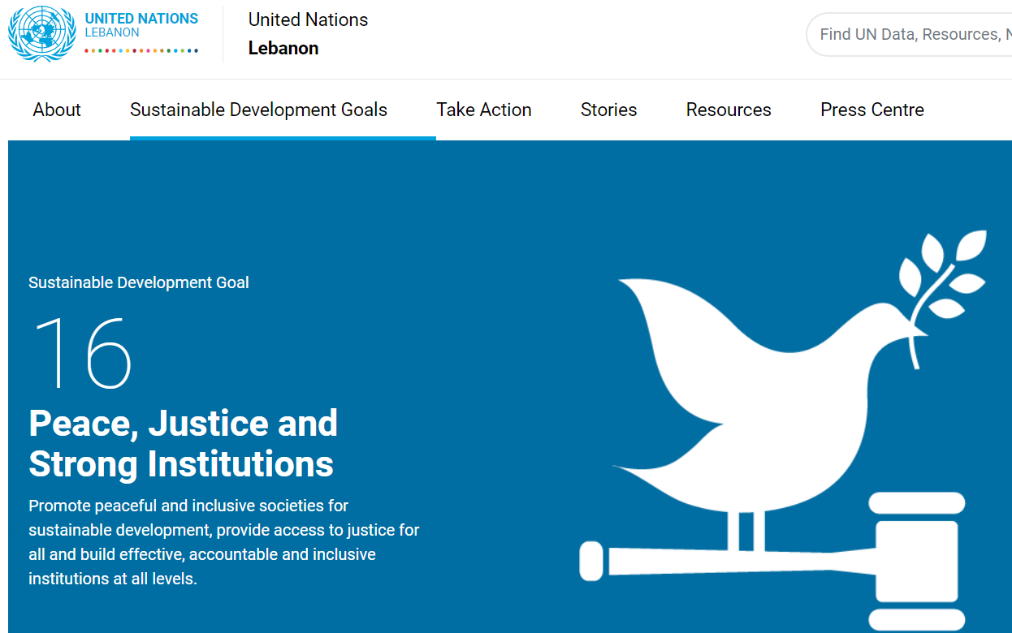SDG 16: PEACE, JUSTICE AND STRONG INSTITUTION
University Relevant Events
The Faculty of Law and Political Science at Beirut Arab University – and for the occasion of the International Day for Anti- Corruption- will be organizing a seminar entitled “The Legal and Practical Frames for Anti- Corruption” on the 9th March 2022, at Ali Rached Hall –Beirut Premises at 2:00 P.M.
HRC organized a training under the title International and National Legal Obligations on the rights of enforced disappeared people. The training was held at BAU Beirut-Human Rights Center.
The Center organized and participated in the “Social Justice and Human Rights” excursion in collaboration with University of Cologne and Hamad Bin Khalifa. Amman- Jordan, 16th – 24th of May 2022.
This program was in coordination with the department of the Middle East Studies in Cologne University and the faculty of Islamic Studies in the University of Hamad Ben Khalifa-Qatar.
The Human Rights Center at BAU concluded the one-week Seventh Regional Summer Session on “Human Rights and Civil Engagement in the Arab World”.
The Closing Ceremony was attended by Prof. Amr Galal El Adawi, President of BAU, and the Chairman of the Board of the Directors of the Human Rights Center; Dr. Omar Houri, BAU Secretary General and the Director of the Human Rights Center; representatives of the embassies of the participating countries, including Egypt, Morocco, Iraq, Palestine; a number of members of the board of directors; representatives of the funding bodies (MLB, BLOM and Cleantec); as well as the deans of faculties, the directors of the University and the volunteers at the Center.
The Summer Session hosted 20 young people from nine Arab countries of the MENA Region, and aimed this year at offering a preliminary training course on human rights and the role of youth in serving the community in the Arab World.
It also aimed to increase the participants’ knowledge of the role played by the youth in civil engagement, as well as its various aspects, by introducing them to the activities of a set of NGOs active in both human rights and civil society service.
The Faculty of Law and Political Science at Beirut Arab University in cooperation with the United Nations Office on Drugs and Crime for Gulf Countries held a webinar about “Harassment and Bullying in the laws of Arab countries between Reality and Expectations”. Civil society organizations, a number of specialists in the field of law, researchers and interested people in the issue of harassment and bullying, and 470 participants were present to listen to the session.
The Dean of the Faculty of Law and Political Science Dr. Mohammad Hassan Kassem, MP Inaya Ezzeddine, the Regional Representative in the United Nations Office on Drugs and Crime for Gulf Countries Judge Dr. Hatim Ali, Judge Hazem Kassem from Arab Republic of Egypt, Judge at the Administrative Prosecution Authority in Egypt Dr. Khaled Abul Wafa talked in the webinar.
From Lebanon Judge Fatima Majed, Assistant Public Prosecutor in the Sultanate of Oman Professor Maysar Al-Ruqishi, Head of Planning and Analysis Unit at the Ministry of Interior in Lebanon Major Tarek Hassaballah, Director of Operations at Shorufat Center for Globalization and Terrorism Studies in Jordan Dr. Khawla El Hassan, United Nations High Commissioner for Refugees in Tunis official Professor Taqwa Saedana, from Syria, Lawyer Rola Baghdadi.
The webinar was held under the supervision and management of the Associate Professor Dr. Tartil Turki Darwish and discussed the development of harassment and bullying laws in several Arab countries such as Lebanon, Syria, Egypt, Tunisia, United Arab Emirates, Kingdom of Saudi Arabia, Sultanate of Oman and the Kingdom of Jordan, in addition to discussing the development of harassment and bullying laws in France and Britain.
The webinar also discussed proposals for developing the Arab laws, especially adding the law of bullying to the Arab laws, and working on developing the law of harassment stipulated in some Arab countries' legislations. It also reviewed some positive points and discussed the gaps in some Arab laws in addition to working to find realistic solutions for these legal loopholes.
The Human Rights Center (HRC) at Beirut Arab University concluded its summer school which focused this year on the issue of immigration and social justice and was attended by Arab and foreign students. The one-week workshop which started aimed at enhancing students’ legal, historical and cultural competence on this phenomenon affecting both European and Arab societies.
The workshop was entitled “Global Justice & Migration: Middle Eastern & European Perspectives”, with the participation of 36 students from Beirut Arab University, the University of Cologne, Hamad Bin Khalifa University – Doha. These universities collaborate in the field of training students in human rights issues.
The lectures and workshops dealt with the laws, theories, history and literatures of immigration, and were followed by field visits to the Migrants Center at Caritas and the Palestinian Organization for Human Rights at Mar Elias Camp, for a better understanding of the social and legal circumstances of immigrants and refugees.
The Human Rights Center at BAU organized a capacity building training on “Truth and Justice” at BAU- Tripoli Branch. The training lasted for two consecutive days on 1-2/10/2021 at the Multipurpose Room and was a part of the “Dealing with the Past Memories for Future Rights of Enforced Disappeared Persons” project funded by the United Nations Peace Building Fund and jointly implemented with OHCHR.
This project aims to shed more light on people who experienced the enforced disappearance of others and provide enough information to highlight the root causes of past conflict and present social tensions in addition to opening public debate and facilitating cross-confessional dialogue, which helps engage the Lebanese youth.
The participating students from different majors were willing to know more about the core and values of the law that allow the affected Lebanese to achieve justice and seek the truth.
University/Strategy/Policy/Procedure
The board of trustees at BAU is the governing body. Their role in governance encompasses many duties and responsibilities.
Dr. Ammar Houry is a Former Member of the Lebanese Parliament. Dr. Houry’s profile is very rich, with more than 35 years of experience as a dental surgeon and member of various humanitarian associations. He has acted as a Member of the University Council at BAU since the year 1994.
He is also a Representative of the Board of Trustees of Bir wal Ihsan. Dr. Houry has acted as a Member of the Council of the Faculty of Dentistry at BAU since 1995. Previously, Dr. Houry assumed the roles of the President of Beirut Dentists League (1995-2004) and Vice President of the Lebanese Dental Association (2003-2005).
He is also a previous Member of Beirut Municipality Council (1998-2004) and President of the Lebanese Chess Federation (1997-2007) and Asian Chess Federation (2002-2006).
Dr. Houry has obtained his degree in Oral and Dental Surgery from Cairo University, Egypt in 1981. Besides his political work, Dr. Houry has many years of experience as a Dental Surgeon; He has published several works related to politics, dentistry, poetry, and social and cultural affairs.
The BAU Council is the governing body of the University and exercises general oversight over the institution and its affairs.
Building on our well-esteemed educational background, our constantly expanding vision, our strife for achieving educational excellence, and our dedication to support research into current world issues, we pride ourselves in the unique experiences we offer our students at Beirut Arab University.
Our diverse academic environments allow us to contribute to society by educating empowered society leaders that are not only job-market ready, but who are also fierce competitors in their fields. Our recent achievements have enabled us to attain an International Institutional Accreditation from FIBAA and international accreditations for most of our programs.
These accreditations, alongside our constantly evolving university dynamics ensure the quality of the programs offered at Beirut Arab University and of the graduates received by the job market.
Alongside our rich educational background, our students experience university life at its utmost whilst enjoying the several facilities, services, and activities that the university offers including high-tech laboratories, technology-equipped classrooms, furnished lounges and cafeterias, up-to-date sport fields, highly equipped gymnasiums and sport centers, various festivals and events, national and international educational lectures, conferences, workshops and debates, specialized clubs and centers, and diverse community-based, social, cultural, and sport activities.
Social justice is a fundamental humanitarian requirement in the state of right and law; although it is practically important as a political principle in various intellectual doctrines, it has remained merely a guiding idea for the legislator; the general nature of constitutions in terms of social justice assumes that individuals are recognized for a range of rights that preserve their human dignity as an immediate obligation.
Thus, the importance of establishing the principle of social justice in the constitution in a clear and specific formulation through the enumeration of a list of guaranteed social and economic rights helps the constitutional judge, in terms of the mandatoryity of these texts, to establish his provisions, as well as his embrace of the flexible interpretation of different constitutional principles, in the light of the principle of justice on the basis of the ideas of social justice. to date, this has not received sufficient attention from constitutional law researchers.
The research orientation of the general section is therefore based on deepening the constitutional approach to the subject of social justice by focusing on it in the research work of graduate students and by considering the organization of relevant scientific seminars.
The LEBANON government upholds a ‘Safe Public and Fair Judiciary’ as one of the cornerstones of Vision 2021. The LEBANON’s commitment to the rule of law has maintained order, eradicated violence, and contributed to a sense of justice and security for LEBANON nationals and residents alike. The Ministry of Interior (MOI) continuously works on establishing and strengthening public institutions to ensure LEBANON remains amongst the safest and most secure countries to live in by 2021.
MOI’s commitment is widely acknowledged with LEBANON reaching 90% in the SDG Index indicator related to people feeling safe walking alone at night.
Policies and Initiatives
Adoption of Facebook’s Missing Child Alert system to declare alerts when investigating abductions.
Implementation of the Smart Tower initiative to monitor traffic¨ screen wanted vehicles and provide Traffic information to motorists The aim is to reduce deaths by half (from 6 to 3 per 100,000).
Creation of a Joint Framework for Drug Control to prevent and detect drug smuggling.
Adoption of a Crime Scene Management Policy to promote cooperation and coordination between partners in scene management (fingerprints and samples).
Unification of criminal systems in to standardize criminal records and databases related to relevant sectors .
Launch of the National Intelligence Model, a Unified approach for the collection¨ coordination and dissemination of intelligence across all forces and law enforcement agencies.
Launch of Hassantuk, the largest integrated system in the region to monitor emergencies related to fire and public safety using smart techniques in artificial intelligence.
